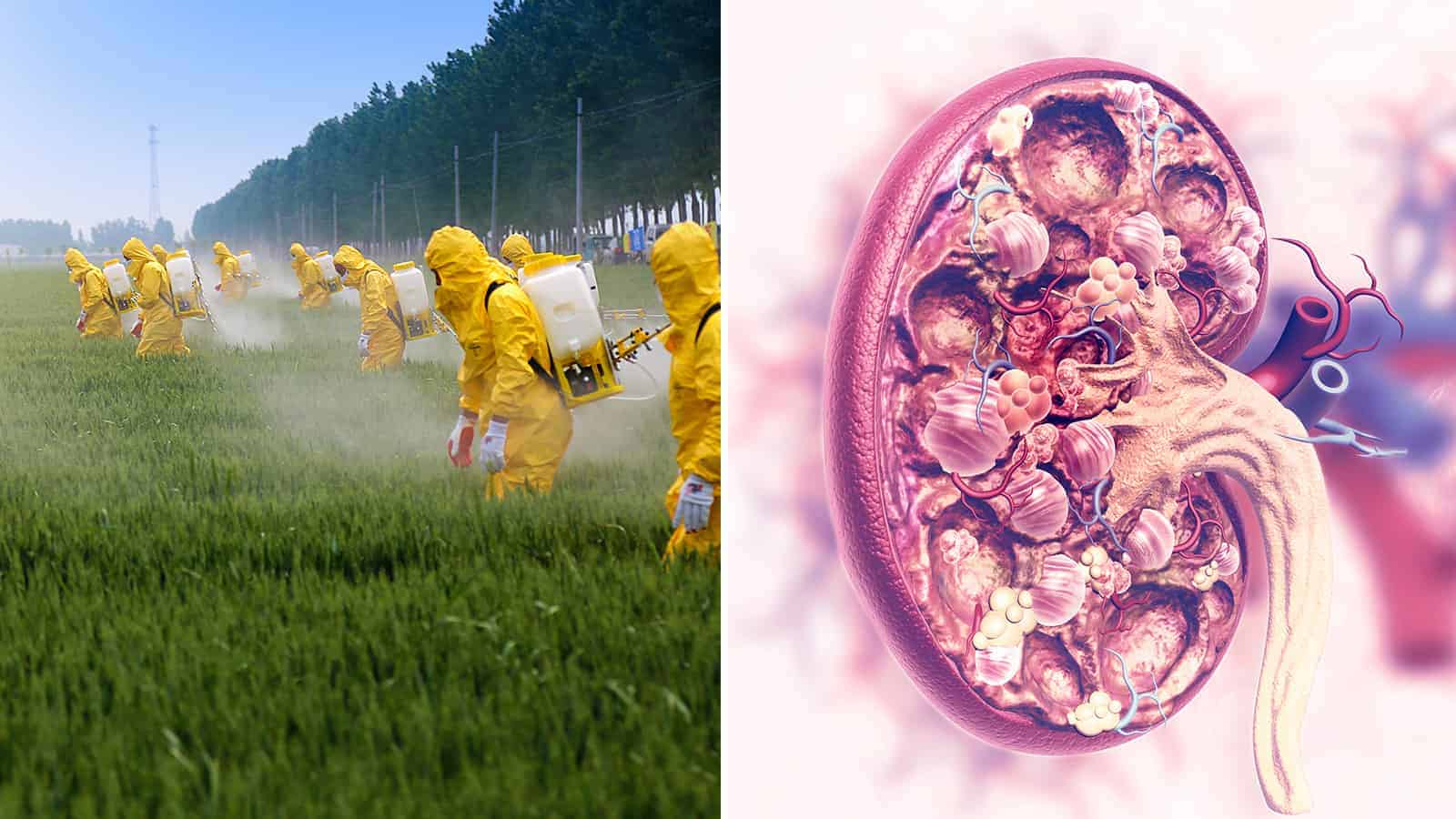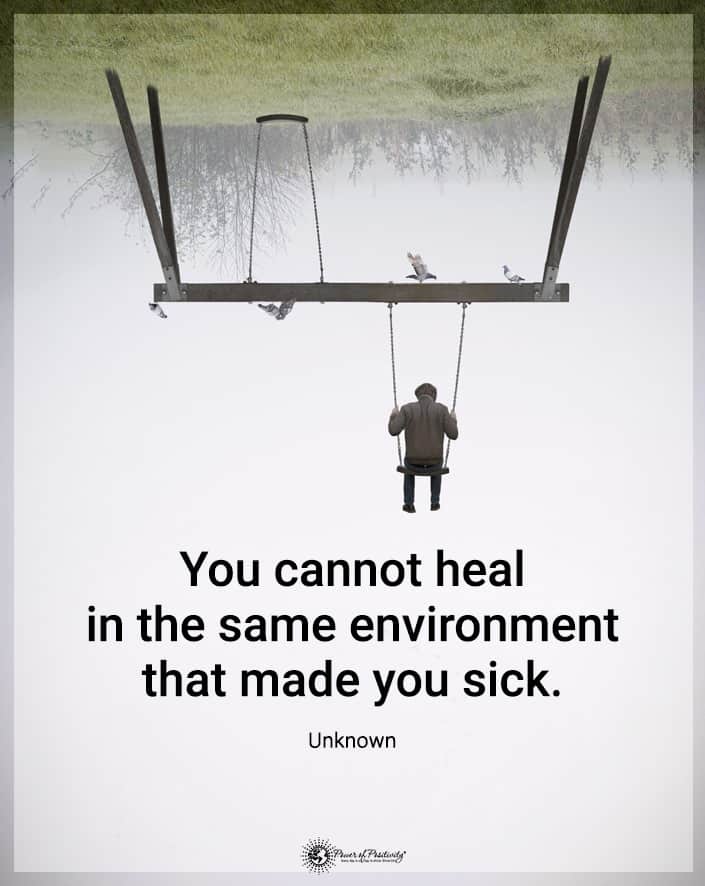University of Queensland researchers found a link between certain pesticides to chronic kidney disease risk. The commonly used pesticide Malathion, called Maldison in Australia, increases the risk of kidney disease by 25%.
Applications for Malathion include agriculture, domestic, and public recreation areas. It’s used to kill mosquitoes and fruit flies and is an ingredient in some topical head lice treatments.
Researchers analyzed links between Maldison exposure and chronic kidney disease risk in 41,847 people for the study. They utilized the USA National Health and Nutrition Examination Survey (NHANES) data.
As a result, School of Public Health Associate Professor Nicholas Osborne explained how people frequently exposed to the insecticide had more significant health risks.
“Nearly one in 10 people in high-income countries show signs of CKD, which is permanent kidney damage and loss of renal function,” Dr. Osborne said.
What is Chronic Kidney Disease?
Chronic kidney disease, or chronic kidney failure, causes the kidneys to lose functioning due to damage slowly. The kidneys’ primary function involves filtering waste and excess fluids from the blood. Then, these impurities pass through the bladder and into the urine for removal.
However, if the kidneys become damaged, they can’t filter toxins from the blood as effectively. The waste builds up in your body instead, leading to other health problems.
How Many People Have Chronic Kidney Disease?
- This condition affects more than 1 in 7 American adults or about 37 million people. However, many more are at increased risk or undiagnosed.
- According to the CDC, kidney diseases are a leading cause of death in the US.
- 40% of people with significant kidney dysfunction don’t even know they have CKD.
- In the US, diabetes and high blood pressure cause kidney failure more than any other condition. In fact, it makes up to 75% of new cases.
Chronic kidney disease risk factors include age, high blood pressure, and diabetes.
Ten Primary Risk Factors for Chronic Kidney Disease
- Heart disease
- Older age
- High Blood Pressure
- Diabetes
- Smoking
- Obesity
- Being African American, Native American, or Asian American
- Family history of kidney disease
- Abnormal kidney structure
- Frequent use of medications that can damage the kidneys
Signs and Symptoms of Chronic Kidney Disease
- Nausea
- Vomiting
- Appetite loss
- Fatigue and weakness
- Sleep disturbances
- Urinating more or less
- Brain fog
- Muscle cramps
- Swelling of feet and ankles
- Dry, itchy skin
- High blood pressure that doesn’t respond well to medication
- Shortness of breath due to fluid buildup in lungs
- Chest pain if fluid builds up around the heart
Treatment for Chronic Kidney Disease
While chronic kidney disease doesn’t have a cure, doctors can usually treat the cause. But they must treat signs, symptoms, and complications of kidney disease with medications. That’s because high blood pressure, anemia, swelling, high cholesterol, and weak bones often occur with kidney disease. Thus, many doctors may prescribe medications to address these conditions.
They may also recommend a low protein diet to reduce waste products in your blood. For end-stage kidney disease, which means your kidneys can’t filter waste on their own, you will need dialysis or a kidney transplant.
However, you can also take preventive measures to lessen your chances of needing medical intervention. These include lifestyle changes, such as keeping your blood pressure below 140/90 mm Hg. If you have diabetes, it’s also essential to manage your blood sugar. Also, make sure to eat healthily and exercise, and lose weight if necessary. Being overweight or obese can increase your risk of developing chronic kidney disease.
Finally, take medications as instructed and get tested regularly for CKD if you’re at risk. If you have CKD, schedule regular checkups with your doctor to ensure you’re managing the condition properly.
Now that you know more about chronic kidney disease, we’ll get back to the study.
Australian Researchers Link Pesticides to Chronic Kidney Disease
Dr. Osborne said that people are developing chronic kidney disease with unknown causes at increasing rates in countries such as India, Sri Lanka, and Mesoamerica.
“Initially, it was suspected the condition was associated with agricultural workplaces through exposure to heat stress, dehydration, pesticide spraying, heavy metals, and agrochemicals,” Dr. Osborne said.
“However, environmental contamination, pesticide residues and herbal medicines potentially containing heavy metals may also be contributing to CKD.”
Scientists haven’t been able to identify the exact cause of increased CKD in these locations. However, they believe that most cases occur from spraying pesticides without personal protective equipment (PPE) and working around contaminated soil.
The University of Queensland study marks the first to prove that Malathion contributed to kidney dysfunction in humans. The findings first appeared on September 29, 2021, in the International Journal of Environmental Research and Public Health.
Dr. Osborne said this:
“The findings suggest we should limit our exposure to pesticides, even in very small doses, as chronic exposure may lead to negative health outcomes. We will continue to investigate if other pesticides may be involved and are planning to collect data on Sri Lankan farmer behaviors to examine their level of exposure when using pesticides in the field.”
Other Negative Health Effects of Malathion (Maldison)
According to the Agency for Toxic Substances and Disease Registry (ATSDR), exposure to high levels of malathion may cause the following:
- nervous system dysfunction
- difficulty breathing
- chest tightness
- vomiting
- cramps
- diarrhea
- watery eyes or blurred vision
- sweating
- headaches
- fainting
- increased salivation
- death (in rare cases of high exposure)
Most people will have limited contact with pesticides and other chemicals used in agriculture. However, some work in industries requiring frequent exposure. Thus, it’s vital to follow safety guidelines and wear PPE when necessary.
Final Thoughts on Study Linking Chronic Kidney Disease to Pesticide Malathion
To produce high crop yields for our growing population, it’s currently necessary to use pesticides and insecticides. However, these chemicals also have unintended health consequences. A recent University of Queensland study linked the pesticide Malathion to an increased risk of chronic kidney disease.
Researchers found that in low- and middle-income countries, chronic kidney disease is rising at alarming rates. Indeed, they believe that frequent exposure to pesticides such as Malathion through contaminated soil or lack of PPE causes this spike. Hopefully, companies that use this pesticide will provide works with PPE moving forward to reduce health risks such as CKD.


















